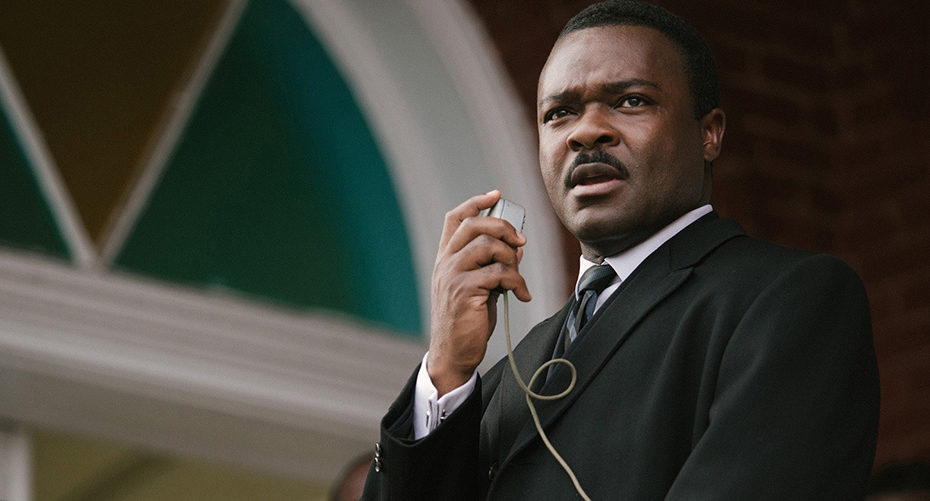Some 2300 years ago in Ancient Greece, Aristotle wrote his three pillars for public speaking. Surprisingly, they’re just as relevant today as they were then.
So relevant in fact, that in Gravitas, Caroline Goyder uses them to define that mystical quality of influence and how to get it. Gravitas, says Goyder, is:
KNOWLEDGE + PURPOSE + PASSION (–ANXIETY)
In her book, she defines each element, highlighting Martin Luther King as a great example on gravitas in action. So let’s look at each in turn and how David Oyelowo’s portrayal of Dr King illustrates them in the movie Selma.
Knowledge (or ‘logos’)
Aristotle used the term ‘logos’ to describe logical argument. It comes from having knowledge of your subject. To have gravitas, Goyder says, “you must have something to say, a circle of confidence in which you are expert and authoritative.”
Martin Luther King spoke with a deep knowledge of civil rights issues, and delivered powerful arguments in a way that was clear and compelling.
In this short scene, Dr King appeals to citizens across the country who care about human rights to join him in Selma. It’s a calm, measured appeal based on simple logic: if you believe that all people are indeed are created equal, then come to Selma and make your voice heard.
Purpose (or ‘ethos’)
The second pillar according to Aristotle is ethos, or credibility. Without credibility, your audience won’t accept you. But credibility isn’t just about knowing your subject. It’s also whether your audience believe you’re trustworthy and of good character.
Goyder calls this element ‘purpose’. It’s about having clear values, of serving the greater good, and having compassion. Can people trust that you not only know what you’re talking about, but believe in it too? To demonstrate purpose, you have to show you care.
In this short scene, Dr King comforts the grandfather of Jimmy Lee Jackson, a black activist brutally murdered by a state trooper. He shows compassion, kindness and empathy. And his assertion that “God would have been the first to cry” has credibility from his position as a preacher.
Passion (or ‘pathos’)
Finally, there’s pathos, which means feeling, emotion. It’s about appealing to the emotions of your audience. Do your words make them feel anything? Are they excited, interested, angry?
Goyder calls this element passion, and Dr King is a superb example. Watch any of his speeches and you’ll feel something. Perhaps it’s a strong sense of injustice, of outrage, or of excitement that you can actually change the world you live in.
Watch this clip of a speech from Selma and you’ll likely be there with his audience feeling all three.
The final part of the gravitas equation is anxiety. Goyder suggests that even if you have knowledge, purpose and passion, you’ll trip up if your nerves affect what you say.
The way you express yourself is important, says Goyder. You need “groundedness, a deep, resonant voice, speaking concisely without fillers, listening fully and having poise under pressure”.
Anxiety affects many of us, but Goyder’s book is a great resource to help overcome it, and leave your impact resting squarely on the other factors.
Find the sweet spot of your knowledge, purpose and passion, and you’ll have truly nailed the secret of gravitas.





